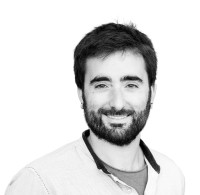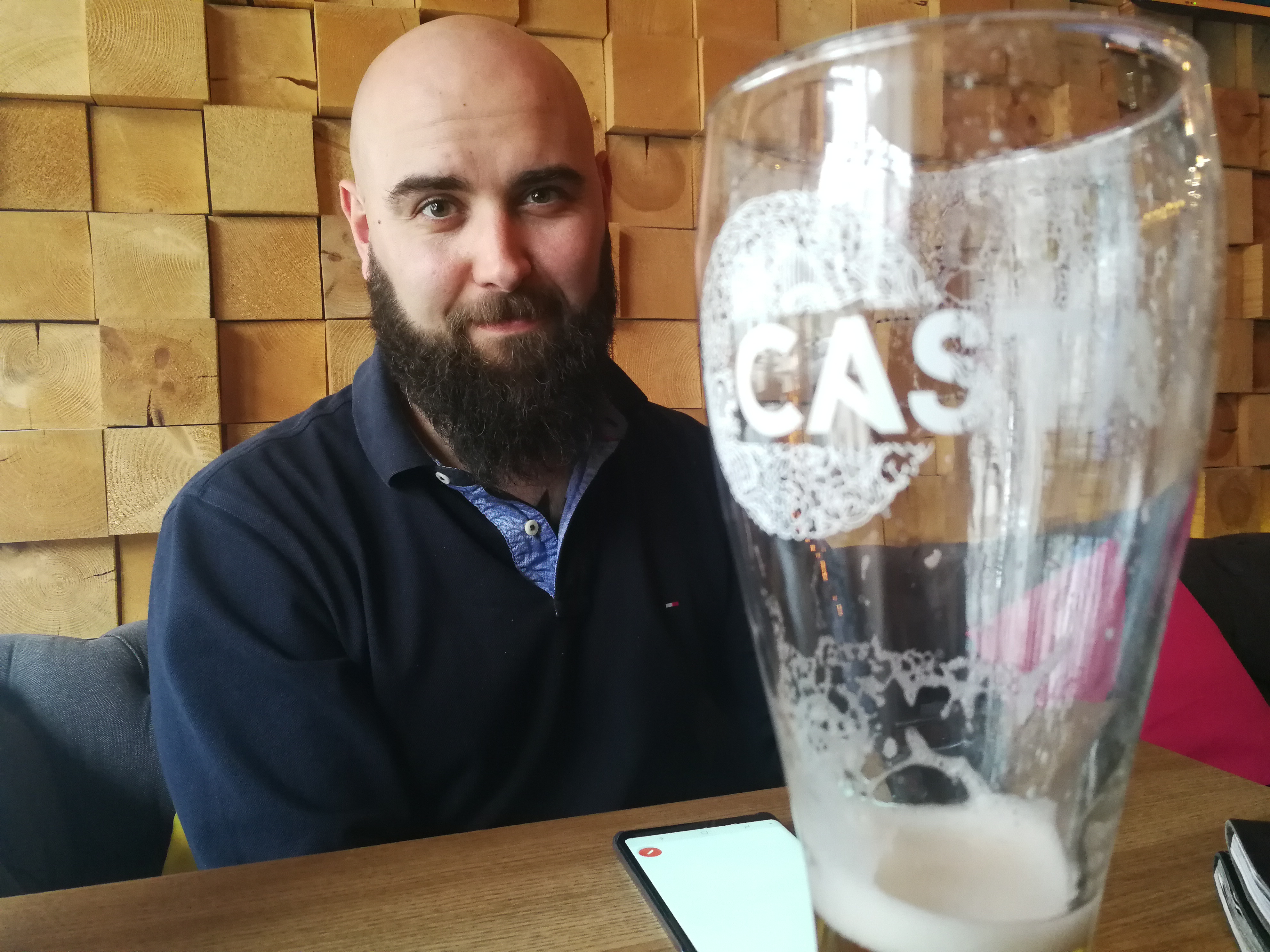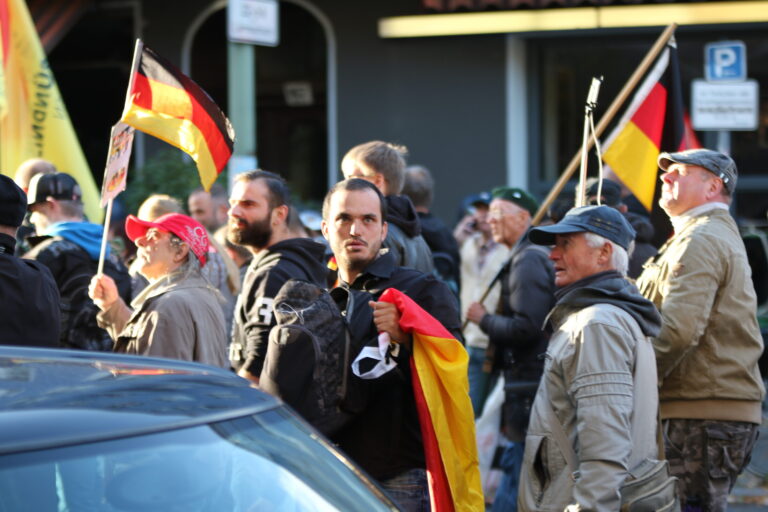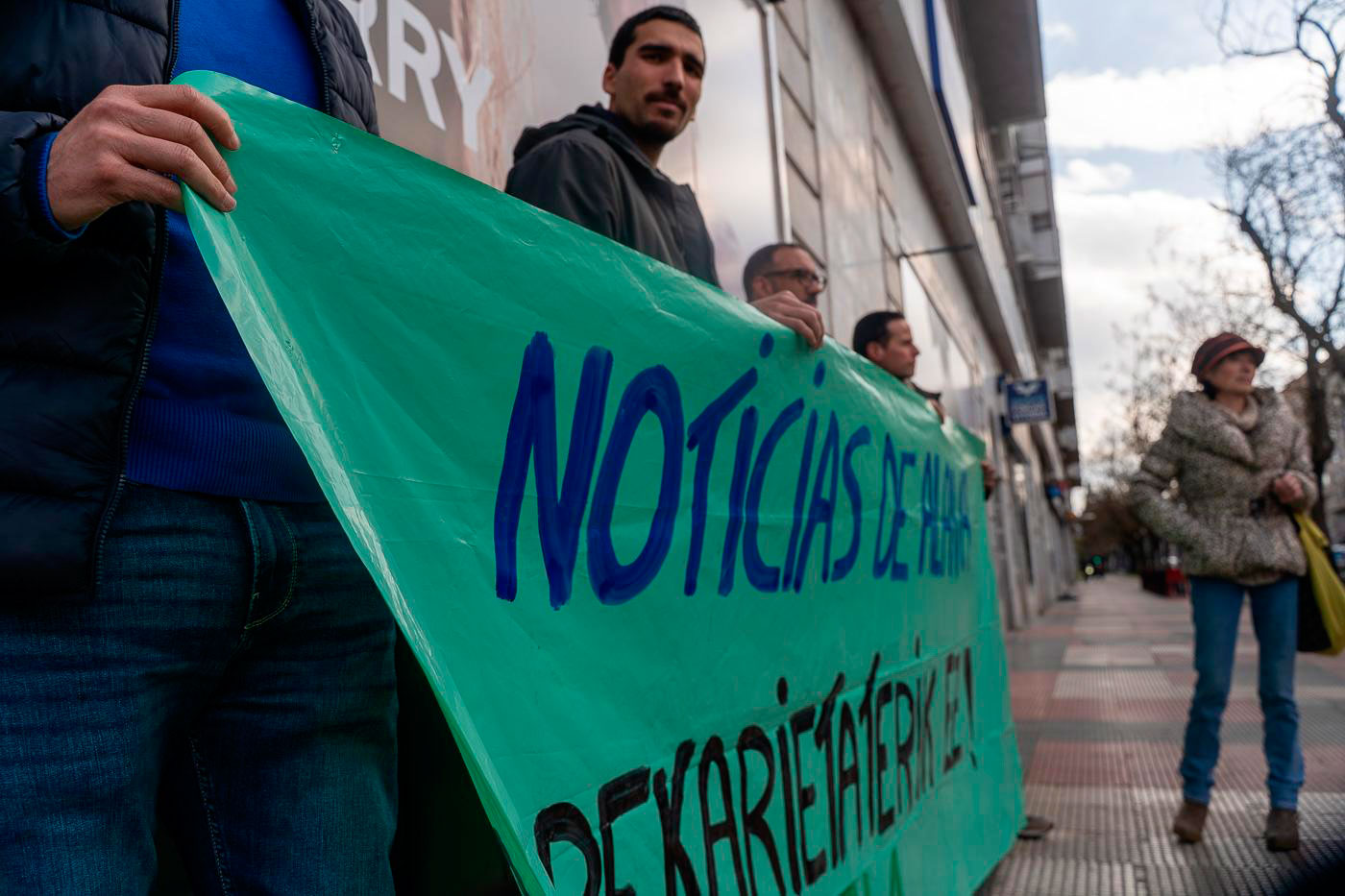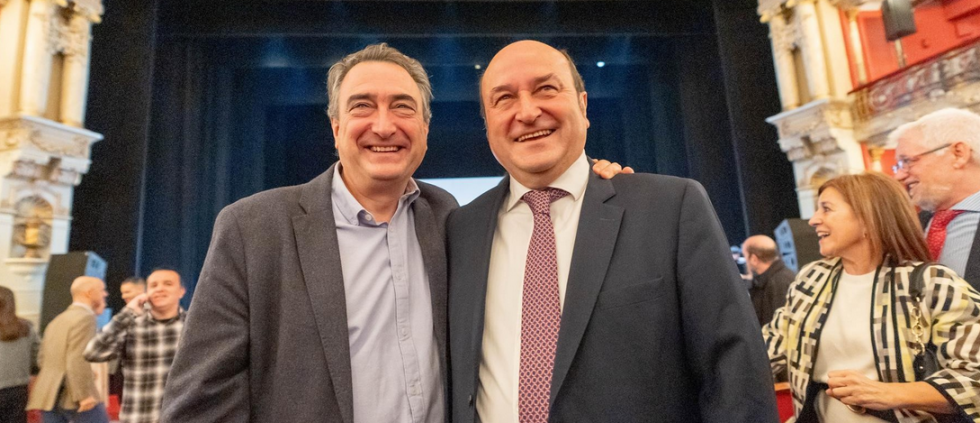Two years in prison in Poland without any evidence
- On 28 February, two years have passed since the arrest of journalist Pablo González in Poland. His secret services accused him of being a Russian spy, but they have not yet shown the slightest evidence or evidence.

Russia began the invasion of Ukraine on 24 February 2022. Since 2014 Pablo González closely followed the Donetsk and Luhansk war in Ukraine, but at the time of the invasion he was in Poland, on the border of Ukraine, Przemy?l. The Ukrainian refugees were reaching Poland thousands of people and González was reporting on this.
The world had internalized as the invasion of Russia was absolutely true. The United States had been saying this for months, and as in the story of the wolf and the pastor, the message had lost credibility, even for González: “I accept. I was wrong too. I never imagined this could happen, much less so,” he wrote in Spanish on February 24 on social media.
Even less could he imagine that four days later he was arrested by the secret services of Poland, accused of Russian spy and two years later he remained pending trial in a high-security prison in Poland, knowing little more about his cause. His is suffering which extends every three months, and on 15 February a Polish court decided to extend the journalist ' s prison for another three months.
Journalists “for the Russians”
Gonzalez has been following the conflict between Ukraine and Russia several times since 2014, including Donetsk and Luhansken. As Joan Teixeira, a photographer who frequented with him, says, “we gave voice on both sides.” As a result of these displacements, in 2016 the Open Society Foundation of magnate George Soros drew up a list of journalists, analysts and/or teachers of the Spanish State “for Russia”, generally left-wing people and not “for Russia”, but with a critical view both with NATO and with Russia. According to Teixeira, the problems began with that list.
.jpg)
At a conference held on 28 October in Madrid, Teixeira told how shortly before the Russian invasion, the Ukrainian intelligence services called Kiev González and accused him of financing Russia: “As proof of this, they told him to write for Gara or to have a Laboral Kutxa credit card.” By then, González was already a well-known journalist and, in addition to the newspaper mentioned, collaborated with Público, the agency Efe and, above all, with La Sexta. The Ukrainian intelligence services left him free of charge and, as Teixeira says, both remained in a confused situation in Ukraine because they believe they were invited to leave.
At the same time, eight people from the Spanish Secret Service (CNI) attended the houses of the couple of Pablo González, Oihana Goiriena, and the Catalan family, informing them that they followed closely the movements of the whole family. “They didn’t interrogate us, they didn’t charge us, they wanted us to be very controlled,” says Goiriena.
Then, when Goiriena told Gonzalez what happened, seeing that the situation was getting worse, the reporter decided to return to Euskal Herria. No one here, neither the secret services nor anyone else, notified him of anything. Shortly afterwards the Russian invasion began and González returned to Eastern Europe, this time to Poland, where he was arrested on 28 February.
“Paul is going wrong”
The journalist was born in Moscow (Russia) in 1982 and arrived in Euskal Herria at 9 years old, first in Catalonia, after his parents separated in Russia. Pavel Rubtsov was his Russian name – his father Aleksei Rubtsov – but they already lived in Barcelona and his mother called him Pablo González, a translation of the Russian name and his mother’s name. His mother's father was one of the thousands of refugee children in Russia during the 1936 War. Gonzalez has dual nationality, Russian and Spanish, has been living in Nabarniz (Bizkaia) for years and has three children alongside Goiriena, aged 8, 11 and 16. The secret services of Poland have used this duplicity of names as proof of their spy status. Two years after the arrest, ARGIA Oihana Goiriena speaks on the phone with her partner.
Gonzalez has González in a high-security prison in Poland, in a special security module, “in a prison inside the isolated prison.” He spends 23 hours in his cell and leaves an hour alone in the yard. You can talk to other prisoners in the area, but screaming for squid.
“Paul is wrong,” Goiriena confesses. Paul’s mother, his eldest son and all three of them visited him in jail last June and did not see him well, “However, given the psychological torture he suffers, he was pretty good. During the visit, she did not want to show weakness towards the mother and child, but she was not well, and this is even more evident in the letters. ‘How are you?’ I asked him during the visit [they could not speak in Basque] and ‘I’m,’ he replied shortly.”
In addition to this visit, Goiriena had made another earlier visit. Two visits in two years. Telephone communication is prohibited and they must communicate with each other by a letter two months late: “The November postcards of the Madrid solidarity group came to you two weeks ago.”
.jpg)
The hardest, the lack of information
The situation is harsh for Gonzalo and for his own. These days are hard and laborious, “days of dialogue and interconferences”, as described by Goiriena, “up and down, this is a whirlpool”. “The hardest thing is the lack of information. We have no goal: the date of trial, the end of provisional prison... Something to start discounting the days. This generates many unanswered questions,” he emphasizes with resignation.
To begin with, they do not know how long they will have to stay in provisional prison, because in Poland there is no limit to this. They are told that it is generally four years maximum, “but sometimes up to eight. The children also ask me, but I don’t know what to answer,” says Goiriena.
Judicially, the situation is complicated. His defence is carried out by the prestigious lawyer Gonzalo Boyé, but he also has a group of lawyers in Poland, where he is required to be a lawyer in a lawsuit there. For the defence, another important factor that aggravates the situation is the lack of information: the prosecution does not have to show all its accusation from the outset, so Boyé has only been able to see part of the accusation so far, which, in his view, leads to defenceless.
The lack of attention of the Government of Spain
Gonzalez receives the visit of the Warsaw Consul in Spain, but no one from the Spanish Foreign Ministry has contacted his relatives. The Madrid solidarity group has addressed the ministry eight times, but has not yet received a response. This is surprising, given that several European institutions have shown solidarity with the journalist, or that the world association of journalists without borders considers the case very serious: “It is the first time in the European Union that an EU country has arrested a journalist from another EU with such an accusation.”
The Basque Government has made telephone contact with Goiriena and offered him friendship, encouragement and support, “Yes, I was told that the Basque Government has very limited powers in external relations. They’ve also told me they’re going to do what they can, but they haven’t told me what they’ve done,” explains Goiriena.
Meanwhile, numerous media and journalists from Euskal Herria, including ARGIA, have denounced González's situation and called for his freedom. Two years after the arrest, several media outlets have held meetings on their media portals on Wednesday, including this magazine. The cry of many media, journalists and human rights organizations is one and the other: “Paul release!”
Apirilaren 24an, ETB1ean, jendeak aspalditik eskatzen zuen programa eredu bat estreinatuko da: Linbo, late night formatuko ordubete inguruko saioa, gazteek eta gazteentzat egina.
"Ask for your turn and we'll join you," the willing and cheerful announcer who speaks from the studios tells the young correspondent who walks through the streets of Bilbao. The presenter immediately addressed the audience. "In the meantime, we are going to Pamplona..." They opened... [+]
I have to confess a sin here. Four years ago, I introduced a new habit into my life: on Sunday nights, I began to watch the ultra-right television channel CNews, which spreads continuous "information" like a cannon of shit. What was at first half an hour a week, has at any given... [+]
Martxoaren 14an Donald Trumpek agindu exekutibo bat sinatu zuen, hainbat berri agentziak jasotzen duten diru kopurua asko murrizteko. Kaltetuetako bat United States Agency for Global Media (USAGM) izan zen eta, ondorioz, Voice of America (VOA), Radio Free Europe/Radio Liberty... [+]
2022ko ekainaren 7an, Directa-k serie luze bateko lehen polizia infiltratuaren kasua argitaratu zuen. Martxoaren 5ean, Belen Hammad fikziozko izena erreta geratu zen, polizia-argotean dioten bezala. Jada hamar dira Directa, El Salto eta El Diario-k azken hiru urteetan argitara... [+]
USAIDen inguruko txolopotearen ondoren, espero beharrekoa zen. Baina, hala ere, urte askotan haien jarraitzaileak izan garenok, samin-puntu batekin hartu dugu albistea. Martxoaren 15ean, Trump administrazioak, kolpetik, erabat itxi baitu United States Agency for Global Media... [+]
Varsoviako Barrutiko Auzitegiak argudiatu du González jada ez dagoela Polonian, eta ezin dutela jakin noiz aterako den Errusiatik. Auzitegiak ez du kazetari nabarniztarraren aurkako bestelako prodezurarik abian jarriko.
Gaur abiatu da Bizi Baratzea Orrian kide egiteko kanpaina. Urtaro bakoitzean kaleratuko den aldizkari berezi honek Lurrari buruzko jakintza praktikoa eta gaurkotasuneko gaiak jorratuko ditu, formato oso berezian: poster handi bat izango du ardatz eta tolestu ahala beste... [+]
Alemaniako Poliziak asteleheneko gertakariaren arrazoiak "politikoak" zirela baztertu duen arren, 35 urteko Alexander Scheuermann Ring Bund talde neonaziko kide zen. Bi hildako eta hamar zauritu utzi dituen atentatuaren egileak sare sozialetan "gorroto mezuak"... [+]
Lan baldintzen "prekarietatea" salatzeko kontzentrazioa egin zuten asteartean egunkariaren egoitzaren aurrean. Abenduaren 2tik sindaura greban daude langileak eta mobizlizazioak "areagotzea" erabaki dute orain.
Urtea baino gehiago da Olatz Simonek –EITBko berriemailea Parisen, garaian–, orrialde hauetan bertan ohartarazi zigunetik Bruselak kazetariari lanbideaz erakusten dionaz. Eta halaxe joan gatzaizkio galdezka Amaia Portugali. Bruselan gure irrati publikoak duen... [+]
Langileek salatu dute zuzendaritzak ez diela lan baldintzen gaiari heldu nahi izan eta enpresak nahiago izan duela Gaztea Sariak ekitaldia bertan behera utzi, “horrek sortutako albo-kalte ekonomiko eta sozial guztiekin”, arazoari irtenbidea eman baino.
Joan den asteartean La Vanguardia-n argitaratutako artikuluan egin zuen proposamena Txema Montero abokatu bizkaitarrak. 30 urtez Deia egunkariko kolaboratzailea izan da eta lehenik hara bidali zuen bere artikulua, baina egunkariak ez zion argitaratu.










